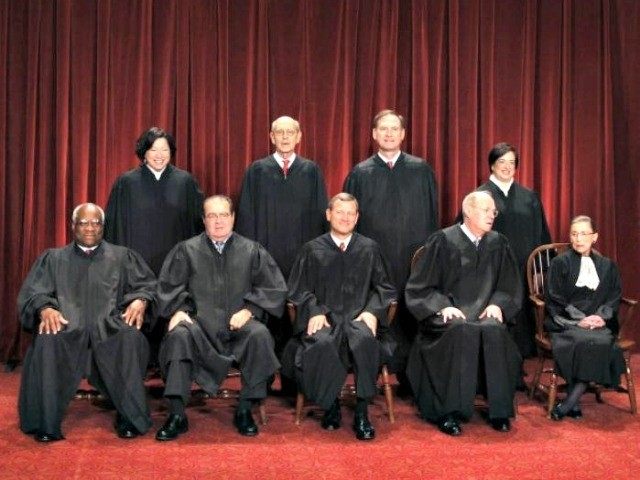For nearly a year, the case Arizona State Legislature v. Arizona Independent Redistricting Commission has been gyrating its way through the intricate legal processes of the United States Supreme Court. While a growing number of political insiders are becoming aware of this case, it is shocking to me how many well-informed California politicos are unaware that there is a strong possibility–I would actually say a strong likelihood–that the highest court in the land will strike down a ballot measure, Prop. 106, passed by Arizona voters back in November of 2000, which created an independent state commission to draw that state’s congressional districts. Sound an awful lot like California’s Prop. 20 passed in 2010? It sure does.
Back in January, I penned a column where I got a bit into the weeds on exactly the issue before the court, which boils down to a section of the elections clause of Article One of the U.S. Constitution. The beginning of section 4 states, “The Times, Places and Manner of holding Elections for Senators and Representatives, shall be prescribed in each State by the Legislature thereof.”
Arizona legislators have sued, asserting that the Constitution places redistricting squarely in the hands of “the Legislature thereof,” not in the hands of any others, including redistricting commissions.
If the SCOTUS does throw out these ballot measures, at least in the case of California, there would be plenty of time for the state legislature to pass a new bill redrawing California’s 53 congressional seats in advance of the 2016 elections.
What could that mean? For starters, it would not take too much tinkering with lines to move most, if not all, of the nine districts that Republicans were competitive in but lost in 2012 off of the table. It also would not be hard to envision monkeying with the districts of Republicans on the edge of LA, such as Steve Knight or Ed Royce, making them much more competitive. So for those who thought that the GOP having only 13 of 53 seats was the worst it could get, think again. Of course, there could be some Democrat infighting as state legislators seek to jockey U.S. House lines to suit their future political careers.
So why is there a strong likelihood that the Supremes will, in fact, rule in favor of Arizona legislators and throw out Prop. 106 (and California’s Prop. 20 at the same time)?
Earlier this month, on March 2, the SCOTUS heard oral arguments in this case. It was after that hearing that virtually every respected observer of the court said that the Court will likely overturn the creation of independent redistricting commissions for House lines.
Rick Hasen, a well-regarded elections-law scholar and proprietor of the popular ElectionLawBlog.com site made these observations:
From my read of the transcript, Chief Justice Roberts, Justice Scalia, Justice Alito, and Justice Kennedy all seemed skeptical that the word “legislature” used in the Elections Clause could refer to an initiated redistricting process in which the legislature is not involved. Part of this turns on what Legislature meant at the time of the Constitution’s drafting, as well as the use of the term Legislature in other parts of the Constitution which seems to more clearly refer to the representative body. Of course, there was no regular initiative process at the time of the founding, but that fact can cut either way. There are also two precedents which seemed to support the broader reading of “legislature,” but not only the conservatives, but also Justice Breyer, did not believe those cases settled the case.
When you add in Justice Thomas, who is likely to join fellow conservatives in reading Legislature in the narrow textual way, and possibly Justice Breyer, that looks like a majority which will reject a redistricting commission in which the state has no involvement.
Lyle Denniston, in his analysis for SCOTUSBlog.com, recounts some statements from two Justices, foreshadowing their likely opinion on the matter:
When Waxman related the role of the people to the wording of the Elections Clause, he was sharply rebutted by Justice Antonin Scalia, who demanded to be told where, anywhere in the Constitution, those who wrote the document referred to a legislature as anything other than a representative body.
Justice Anthony M. Kennedy told Waxman that the history of the method of electing members of the U.S. Senate–by legislatures rather than by the people (before the passage of the Seventeenth Amendment in 1913, giving that power to the voters)–“works very much against you.”
The bottom line: as you read this, some very wonky Democrat demographic experts are already modeling new House lines for California, to be prepared to seize the moment for a partisan gerrymander.
Jon Fleischman is the Politics Editor of Breitbart California. A longtime participant, observer and chronicler of California politics, Jon is also the publisher at www.flashreport.org. His column appears weekly on this page. You can reach Jon at jon@flashreport.org.

COMMENTS
Please let us know if you're having issues with commenting.